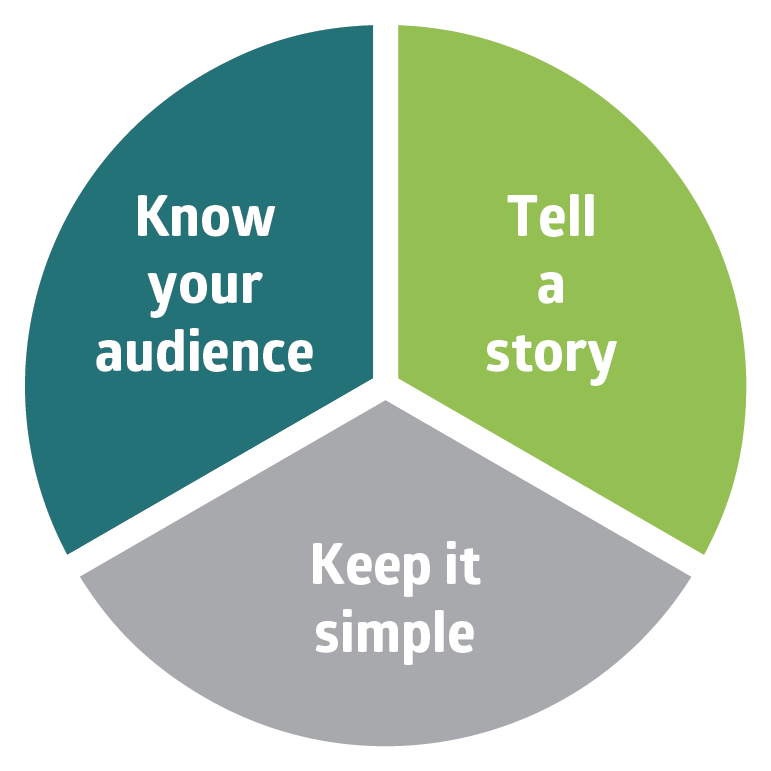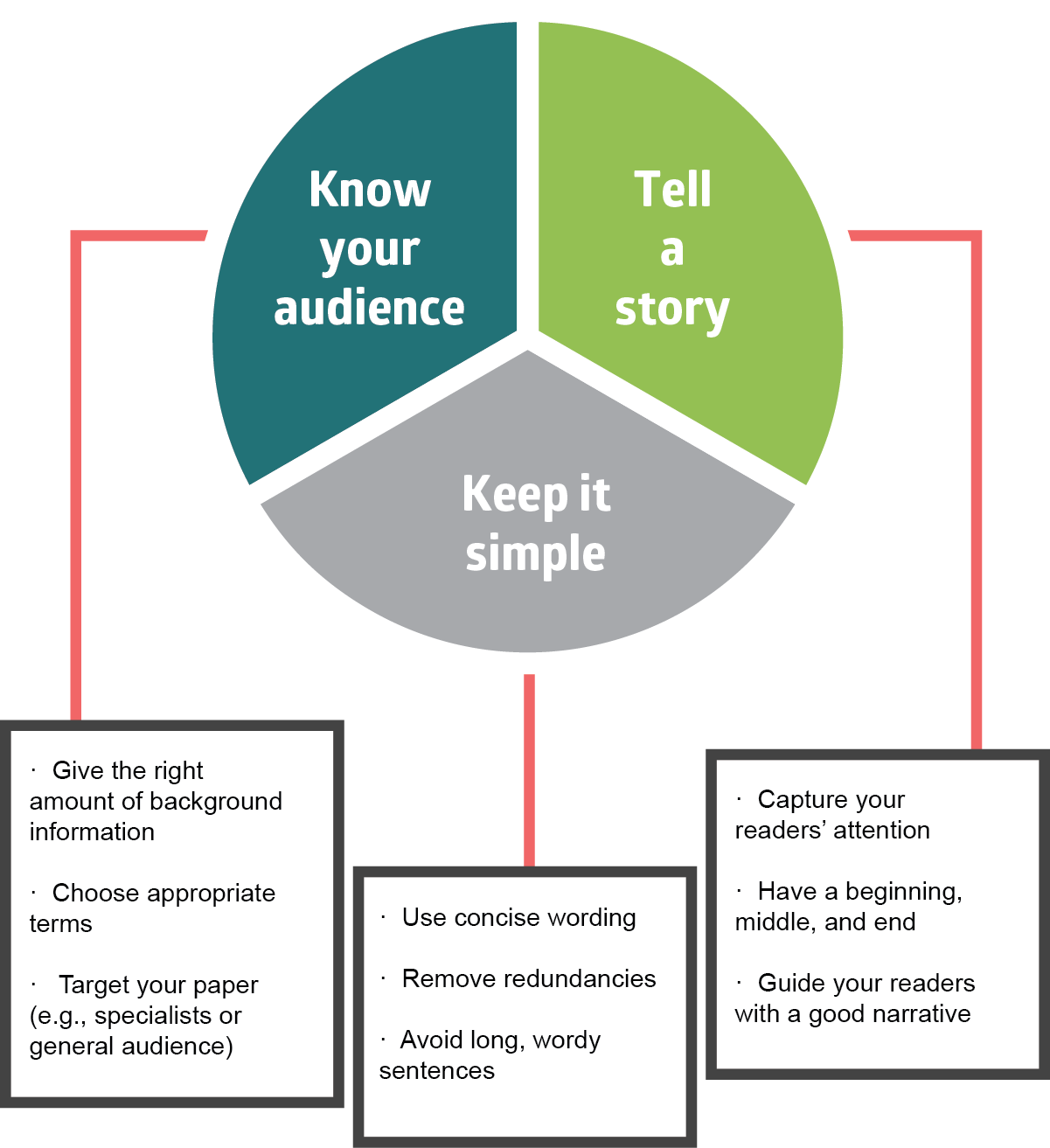"generally, the fewer the words that fully communicate or evoke the intended ideas and feelings, the more effective the communication."
Finally, to help your readers understand you, use clear, concise English. Mark Twain said “generally, the fewer the words that fully communicate or evoke the intended ideas and feelings, the more effective the communication.” Here are three ways to avoid wordiness. First, consider your word choice. Can you use a single, short word? For example, you can often replace "carried out" with "performed," "almost the same" with "similar," and "utilize" with "use." Second, remember that unnecessary phrases and redundancies also hinder understanding. Removing them can only improve your writing! Common culprits include phrases like "From the existing literature, it is well known that" and "due to the fact that." Spot redundancies by asking yourself whether the words could be removed without altering your meaning. For example, consider "red in color" and "rectangular shaped." Can "red" be anything other than a color? Can "rectangular" be anything other than a shape? If not, then "color" and "shaped" are redundant. Third, use the active voice. The passive voice often produces awkward, wordy sentences—or, to say it again in passive voice, "awkward, wordy sentences are often produced by the passive voice." Identify where you can rewrite sentences in the active voice, where the subject performs the action named by the verb. During editing, removing wordiness can often decrease the word count by around 15%, vastly improving readability. A high word count is often mistaken as a sign of substantial content, and wordiness can be confused with intelligence. However, the best papers are often also the most succinct and easiest to read. Many of the most prestigious journals also have the tightest word counts, the widest audiences, and the strongest emphasis on clear language. If you hope to submit your work to Nature or Science, you need to make your work concise and accessible to all educated readers, even those outside your field.
Another barrier to comprehension is wordy sentences with many clauses. Readers are more likely to misinterpret the relationship between the parts of long complicated sentences and lose your meaning. Forcing your readers to work hard to understand your meaning will tire and frustrate them. Make understanding your meaning easy! Varying the length and structure of your sentences will sound the most natural and improve the readability of your work.





